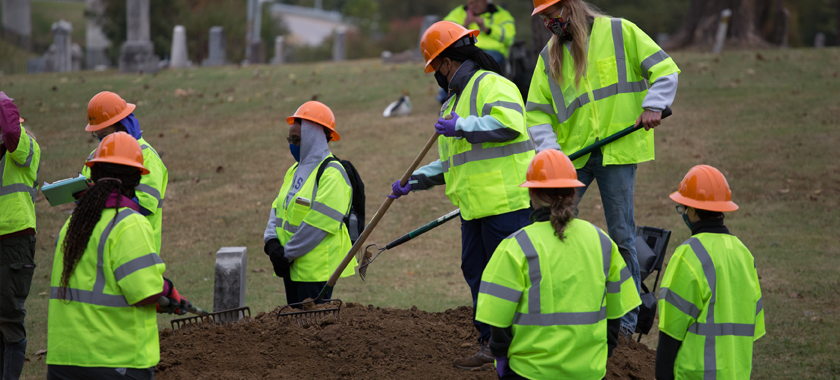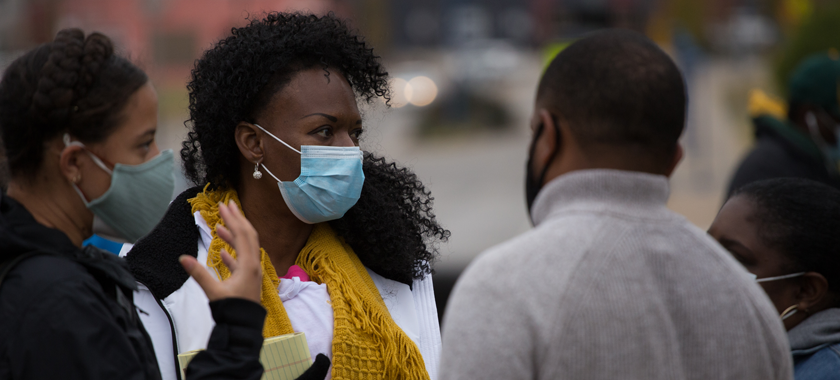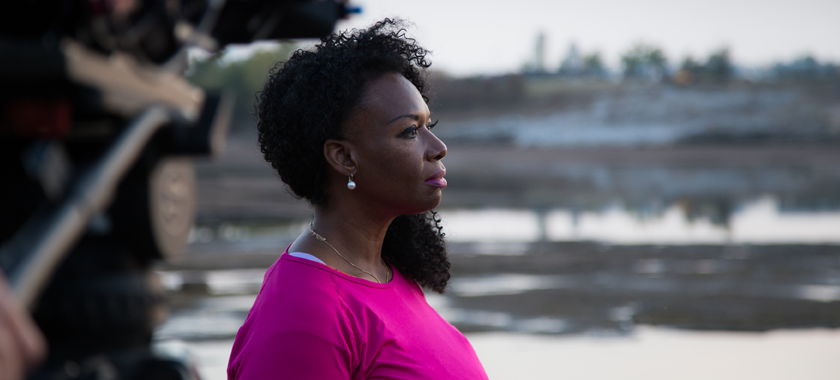Conversations | Jonathan Silvers on “Tulsa: The Fire and the Forgotten”
Feature-length documentary investigates the Tulsa Race Massacre and will premiere on the anniversary of its centennial.
As a journalist and filmmaker, Jonathan Silvers has spent a quarter of a century investigating war crimes and human rights violations around the globe, producing feature documentaries and investigative reports for PBS, ABC, NBC, CNN, BBC, and other broadcasters. In 2019, he was stunned to learn of an epic crime that took place in the United States 98 years earlier: the 1921 Tulsa Race Massacre.
Silvers investigated further, and, spurred by one of the worst incidents of racial violence in American history, decided to produce the feature-length documentary Tulsa: The Fire and the Forgotten (through his company, Saybrook Productions), to be released on the 100th anniversary of the crime in context of other racial massacres and police killings. We spoke with Silvers about the Fiscally Sponsored project, which will premiere on PBS on Monday, May 31.
NYFA: Can you tell us briefly about how Tulsa: The Fire and the Forgotten came about?
Jonathan Silvers: The Tulsa Race Massacre was equal in intensity to any modern day war crime. Indeed, the only difference between that historic crime and the war crimes I’ve covered was the setting.
After immersing myself in the history and legacy of the 1921 Tulsa Massacre and accompanying era of racial terrorism, I decided to produce a feature-length documentary entitled The Fire and the Forgotten to investigate these massacres—at the scene of the crimes, in the homes and communities of descendants of the victims, and in courtrooms and government offices. At a time when America is convulsed by racial unrest, it is my profound hope that the documentary will inspire honest and informed discourse that promotes tolerance, understanding, and harmony.

NYFA: Was it crucial that the project be released on the centennial of the Tulsa Race Massacre?
JS: Yes, my goal at the outset was to commemorate the Massacre on its centennial. What better way to explore an era of racial terrorism than on the centennial of the worst in our history? My interest was less in reviewing historic records than in examining the present-day impact of that crime on Tulsa’s Black community. Through vérité segments, the film conveys the emotions and reactions of descendants and activists as they repudiate the past—and plan for reparations and reconciliation.
NYFA: What were some of the greatest challenges that you encountered in the filmmaking process, and how did you surmount them?
JS: Covid, Covid, Covid. The pandemic made production a near-impossibility. Oklahoma was one of the pandemic’s epicenters, with exponential increases in hospitalizations throughout 2020. The entire crew took enormous risks while filming in and around Tulsa. We endured endless quarantines when we returned to New York. Our principal subjects took similar risks in working with us. We all took these risks because we believed in the greater good that would come from probing the 1921 crime and its impact.

NYFA: In general, what skills and traits are needed to pursue topics that explore international justice, conflict, and human rights?
JS: Every exploration of international justice is founded on the conviction that awareness leads to change. Exposing crimes against humanity and holding perpetrators accountable are worthy objectives. But exposure and accountability are essentially meaningless if the environments (social, economic, political) that foster mass crimes aren’t transformed.
NYFA: For those who have recently started out in their careers as independent filmmakers—what is the best advice you’ve ever received on your craft that they should know? Or, if you have your own advice based on past experience, please share.
If you believe in your subject, then believe in your ability to explore it. Don’t wait to get permission. Don’t wait to secure funding and/or distribution. Get a videocamera, learn how to use it properly, and go. Shoot the project yourself, or at least a phase of it. At an early stage, create a video assembly to demonstrate proof of concept—and proof of your ability—to the people whose job it is to say no. If they still say no, put it out yourself.
– Amy Aronoff, Senior Communications Officer
NYFA Fiscal Sponsorship’s quarterly no-fee application deadlines are June 30, September 30, December 31, and March 31. We also accept Out-of-Cycle Review applications year-round. Reach out to us at [email protected] for more information.
Sign up for NYFA News and receive artist resources and upcoming events straight to your inbox.





